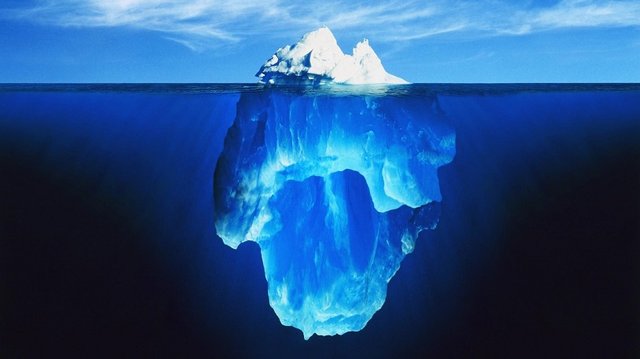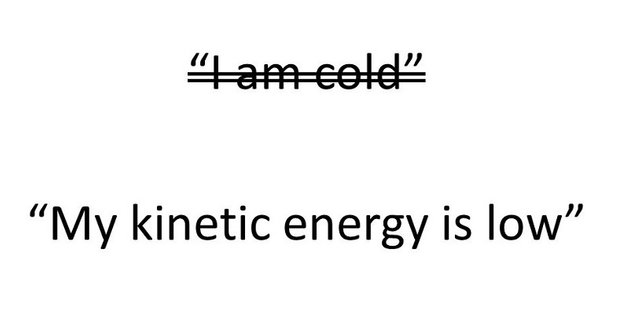[PSYCHOLOGY/PHILOSOPHY] The Nature of The Unconscious
It wasn't Freud who invented the unconscious, but it's with his name that the idea is mostly associated today. Ideas of the unconscious can be found in Schopenhauer and Goethe and one can perhaps find traces even further back in time. We aren't aware of most of what happens in the brain. So far, everyone agrees. The question is rather whether there is an "unconscious" that is systematized, and competent, and that perhaps even can influence cognitive processes as well as behavior outside the scope of cognitive awareness. It seems as if even orthodox psychology is about to accept this.

Given that contemporary neuroscience doesn't claim to know what the function of the mind really is, one might ask oneself if not the unconscious ought to be able to do everything that the conscious can do
Some even argue that free will doesn't exist - since decisions are made unconsciously. Some research have shown that rationalization activity may happen without conscious deliberation. Creativity is perceived as an unconscious combination of past experience, and what we call intuition is about the same thing.
While some question the unconscious, others are questioning consciousness. Eliminative materialism belong to the most extreme positions.
Eliminative materialism means that you simply deny the existence of mental phenomena such as desire, thoughts, joy and pain. Everyday conceptions of the soul and psyche is seen as bad science, "folk psychology", a prescientific way of thinking. It denies that the mind and experiences exist and instead talks of "qualia". All experiences consist of meaningless, in itself unintelligible instances of experience. Rather, "color spots in different shades" than "apple". Eliminativists probably see a future where we all talk like Spock from Star Trek.

It seems to be attempting to show that qualia are physical rather than non-physical. Alternatively, that qualia are not natural and therefore doesn't exist either.
Wittgenstein writes that it's a category mistake to compare subjective experiences with objective conditions (in the brain) and eliminativists interprets this to mean that it's illogical to believe in subjective experiences in general. This was probably not what Wittgenstein meant.
Sometimes eliminativists point on correspondences with Buddhism, which denies the existence of "atman" or ego. Buddhism however, is not materialistic, but rather prefers neutral monism or idealism.
Intentionality is another problem area. According to the eliminativists, nothing can really "mean" anything. The very ideas of meaning are rejected since it all rest on intentionality. Peirce and other semioticians argue that it requires an interpretive subject for something to be meaningful. In some ways the eliminativists seem to agree, since they deny both meaning and interpretive subject.

So if the conscious doesn't exist, there's not much left. And if the unconscious doesn't exist either, what would be left then? Everything indicates that the unconscious actually does exist, and denying consciousness is of course absurd. It's important to point out that eliminative materialism is a metaphysical philosophy and not founded in scientific research. The interesting question is rather the nature of the unconscious.
Most of Freud's theories lack evidence. There are still no positive evidence for his concept of repression for instance. Modern cognitive psychology have attempted to disunite unconsciousness from its Freudian roots. The research that points to the existence of the unconscious is radically different from the Freudian notions. It shows evidence for an unconscious that executes automatic processes, but that lacks the complex mechanisms.
It has been said that cognitive psychology is the long subjective tradition, plus behavioristic objective method (thesis, antithesis, synthesis). Perhaps it's time to recognize the unconscious as neither completely subjective, nor completely objective.
— SteemSwede  (art historian, forensic psychologist & painter)
(art historian, forensic psychologist & painter)
Sources:
The neural basis of rationalization: cognitive dissonance reduction during decision-making
Petrilli, S. (2005) Semiotics Unbounded: Interpretive Routes Through the Open Network of Signs. University of Toronto Press.
See my articles on Free Will vs. Determinism:
[PHILOSOPHY] Free Will or Determinism?
[PHILOSOPHY] Free-Will vs Determinism - Round 2
[PHILOSOPHY] Free Will vs Determinism - Round 3
[PHILOSOPHY] Free Will vs Determinism - Heisenberg's Uncertainty Principle
How many millions of dollars wasted on commercials if there is no free will. And why punis people and make laws if everything is given all the time deterministically ?
Crime and punishment in relation to free will vs determinism is actually discussed very lively today within criminology, philosophy of law, neuroscience and psychology. Either way, it's not likely that we in any foreseeable future will be able to establish whether we have a free will or not. But already today criminal law take into account the degrees of freedom, and in offenses where the will of the defendant is considered to have been limited it will be seen as a mitigating circumstance. A fully deterministic approach is unlikely though. We simply must assume that we to some extent have agency and can control ourselves, even if the degree of freedom vary from small to minimal.
Some food for thought:
http://blogs.nature.com/soapboxscience/2013/03/13/crime-and-punishment-from-the-neuroscience-of-freewill-to-legal-reform
https://danielmiessler.com/blog/free-will-and-punishment/
http://www.lotsofessays.com/viewpaper/1686970.html
http://www.oxfordscholarship.com/view/10.1093/acprof:oso/9780199779208.001.0001/acprof-9780199779208-chapter-12
http://www.psychologicalscience.org/news/releases/minimizing-belief-in-free-will-may-lessen-support-for-criminal-punishment.html
Determinism is a religious approach to free will. God is free to choose, but humans are not. Determinism is another word for I will not take responsibility for my own actions. Sorry dude, that is my philosophy ... i made a podcast about it
Well, in fact there is some evidence of Freud's theories and their correspondences with empirical findings in neuropsychiatry.
http://annals-general-psychiatry.biomedcentral.com/articles/10.1186/1744-859X-7-9
interesting, thank you!
I wrote something on this topic too, from a quite different angle :)
https://steemit.com/ai/@technovedanta/is-intelligence-an-algorithm-part-10-intuition
You're one smart guy! Thanks for the explanation.
@kus-knee (The Old Dog)
This post has been ranked within the top 50 most undervalued posts in the second half of Dec 14. We estimate that this post is undervalued by $10.98 as compared to a scenario in which every voter had an equal say.
See the full rankings and details in The Daily Tribune: Dec 14 - Part II. You can also read about some of our methodology, data analysis and technical details in our initial post.
If you are the author and would prefer not to receive these comments, simply reply "Stop" to this comment.